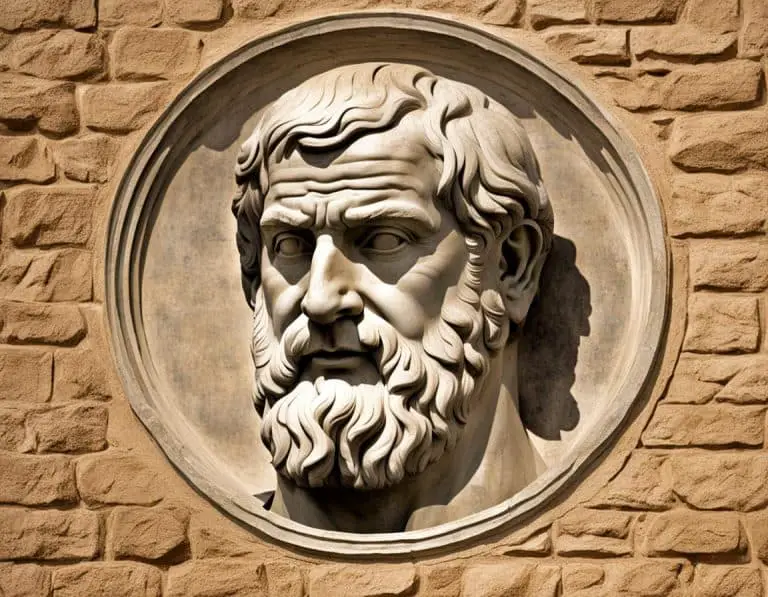The Influence of Socratic Dialogues on Plato’s Writings
Socrates, the renowned philosopher of ancient Greece, played a pivotal role in shaping the philosophical outlook of his brilliant student, Plato. Through the method of Socratic dialogues, where Socrates engaged in thought-provoking conversations with individuals, he instilled critical thinking and a quest for truth in Plato’s intellectual framework. These dialogues not only inspired Plato’s writings but also laid the foundation for his philosophical inquiries. Plato’s works such as “The Republic” and “The Symposium” are infused with the essence of these dialogues, reflecting Socrates’ influence on his disciple’s philosophical discourse.
The Socratic dialogues also served as a medium for Plato to delve into complex ethical and metaphysical questions, mirroring the dialogical nature of Socratic teachings. By emulating the dialectical method employed by Socrates, Plato furthered his exploration of justice, morality, and the nature of reality in his dialogues. This symbiotic relationship between mentor and student is evident in Plato’s writings, where the interplay of ideas and the pursuit of wisdom bear the unmistakable imprint of Socratic philosophy.
Plato’s Dialogues as a Reflection of Socratic Teaching Method
Plato’s dialogues stand as a profound reflection of Socratic teaching methodology, showcasing the influence and essence of Socrates in every exchange and argument within the texts. Through the dialogues, Plato skillfully captures the essence of Socrates’ method of engaging in thought-provoking conversations, where questioning and critical thinking prevail over mere presentation of facts. This reflective approach not only deepens the philosophical inquiries undertaken by Plato but also highlights the significance of dialectical reasoning in exploring complex ideas.
Each dialogue crafted by Plato serves as a testament to Socrates’ commitment to seeking truth through thoughtful inquiry and examination of beliefs. By incorporating Socratic elements into his writing, Plato skillfully presents a multidimensional view of philosophical concepts, inviting readers to delve into the intricacies of ethical dilemmas, justice, and the nature of reality. Through these dialogues, a dynamic interplay between questioner and responder emerges, mirroring the Socratic method of guiding individuals towards self-discovery and intellectual growth.
Socrates’ Critique and Challenge to Plato’s Ideas
Socrates’ influence on Plato went beyond mere admiration or blind acceptance. The great thinker did not hold back in critiquing and challenging Plato’s ideas, pushing him to dig deeper and refine his philosophical concepts. Socrates believed in the power of questioning and intellectual rigor, qualities that he imparted to his young student Plato.
Plato, in turn, welcomed Socrates’ critiques with an open mind and a willingness to engage in thought-provoking discussions. Rather than being discouraged by Socrates’ challenges, Plato saw them as opportunities for growth and intellectual development. This dynamic exchange of ideas between teacher and student laid the foundation for Plato’s own unique philosophical contributions that would shape Western philosophy for centuries to come.
Plato’s Adaptation of Socratic Criticism
Plato’s adaptation of Socratic criticism exemplifies his deep reverence for his mentor’s intellectual rigor. Socrates’ relentless questioning and scrutiny served as a catalyst for Plato to refine his ideas and arguments. Rather than shying away from scrutiny, Plato embraced Socratic criticism as a means to fortify his philosophical beliefs.
Through his dialogues, Plato skillfully wove the essence of Socratic criticism into his own philosophical method. By incorporating elements of critical examination and self-reflection, Plato demonstrated a profound understanding of how constructive criticism can lead to intellectual growth. Instead of viewing criticism as a threat to his ideas, Plato transformed it into a tool for philosophical refinement.
How Socratic Irony Shaped Plato’s Writing Style
Socratic irony played a vital role in shaping Plato’s distinctive writing style. This rhetorical device, employed by Socrates in his dialogues, involves the feigned ignorance or pretense of lack of understanding to provoke critical thinking in his interlocutors. As a mentee of Socrates, Plato incorporated this technique into his own philosophical works, using it to challenge readers’ preconceived notions and encourage deep reflection on complex ideas. Through the clever use of irony, Plato was able to convey profound philosophical insights in a thought-provoking and engaging manner.
Plato’s adoption of Socratic irony not only enhanced the eloquence of his writing but also contributed to the depth of his philosophical inquiries. By presenting his arguments through the lens of irony, Plato was able to invite readers into a mode of active participation, prompting them to question assumptions and explore the underlying truths of his teachings. This stylistic choice not only distinguished Plato’s dialogues from traditional philosophical treatises but also established a legacy of philosophical inquiry that continues to captivate and inspire thinkers to this day.
Plato’s Use of Irony in Dialogues as Inspired by Socrates
Plato’s use of irony in his dialogues was greatly influenced by his mentor, Socrates. Socrates was known for his critical thinking and questioning approach, which often led to the use of irony to provoke deeper reflection in his interlocutors. Plato, being a devoted student of Socrates, incorporated this element of irony into his own writing style, utilizing it as a tool to challenge conventional wisdom and encourage readers to delve into the underlying meaning of his texts.
By infusing his dialogues with irony, Plato aimed to emulate Socrates’ method of teaching through thought-provoking conversations. This literary technique helped Plato to convey complex ideas in a more engaging and memorable manner, inviting readers to question their assumptions and explore different perspectives. Through the clever use of irony, Plato not only honored the teachings of his mentor, Socrates, but also established his own unique voice as a philosopher and writer.
Related Links
What were the key aspects of Socrates’ influence on Plato?
How did Socrates influence Plato’s philosophy?
